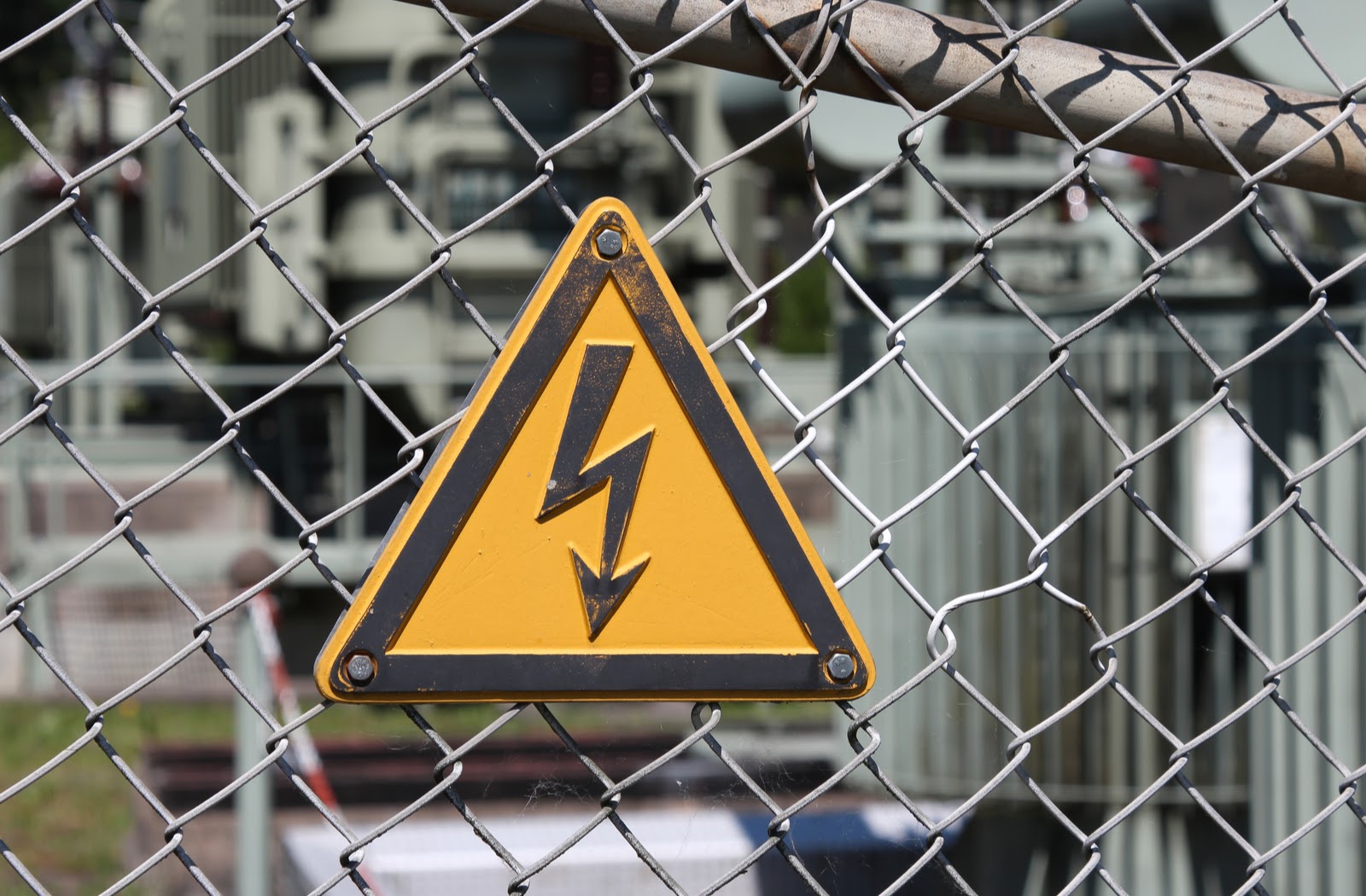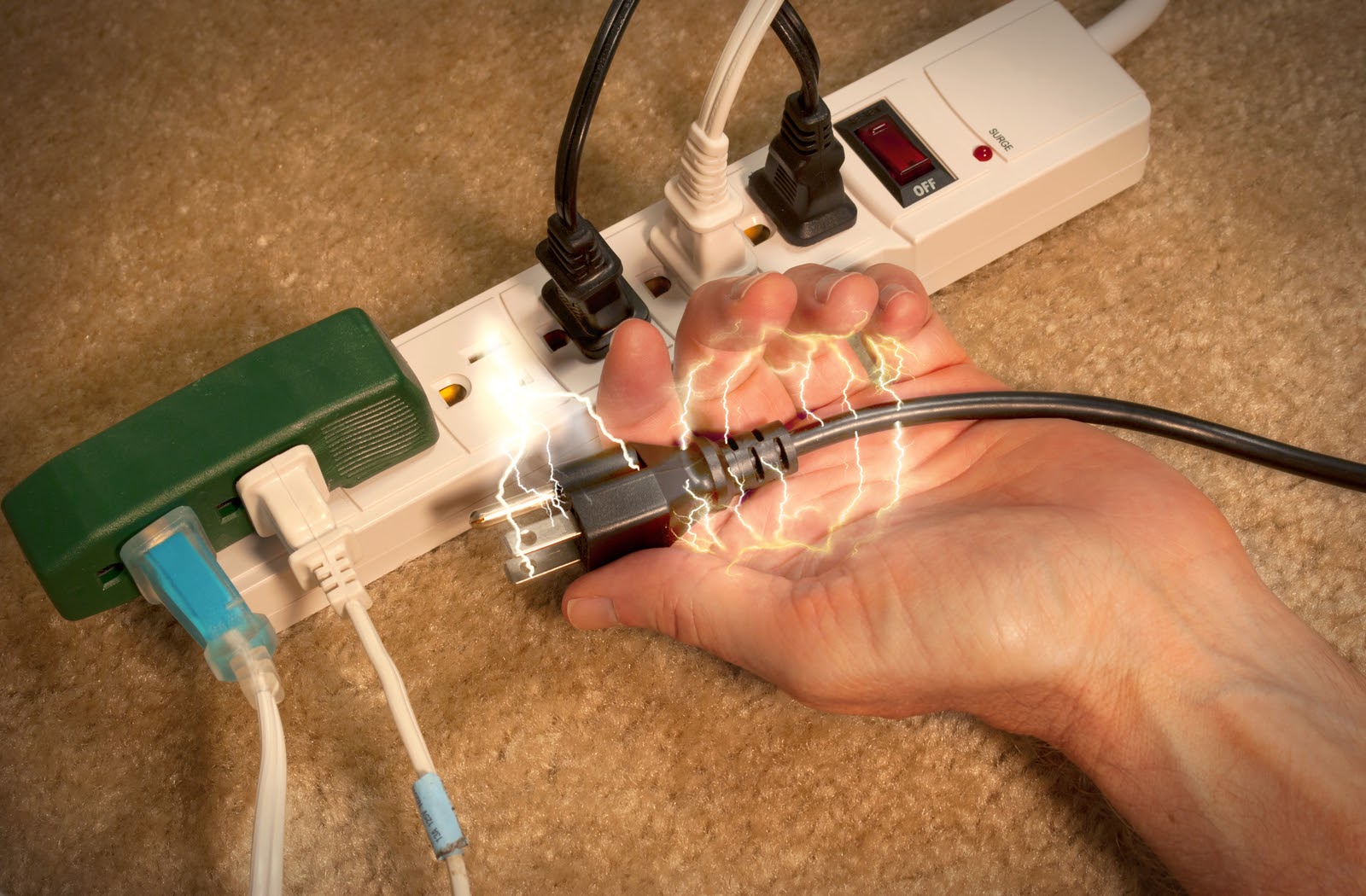
Electrical safety is a mostly preemptive approach to protecting yourself and others from potentially fatal injuries caused by electrocution, electric shock, heat, and falls. If you are unsure if your business or home has proper safety measures in place for their electrical systems, contact Westridge Electric for an electrical inspection.
Why is Electrical Safety Important?
The available electrical current and the voltage of the electricity in regular businesses and homes have enough power to cause death by electrocution. Something as simple as changing a light bulb of a lamp without unplugging it can be hazardous because coming in contact with the “hot,” “energized,” or “live” part of the socket could kill a person.
Some Things to Know About Electricity
All electrical systems have the potential to be dangerous. Electricity can be either static or dynamic:
- Dynamic electricity is the uniform motion of electrons through a conductor. This motion is known as electric current. Conductors are materials that allow the movement of electricity through them. Many different metals are conductors, and the human body is also a conductor.
- Static electricity is the accumulation of charge on surfaces as a result of contact and friction with another surface. This friction causes an accumulation of electrons on one surface and a deficiency of electrons on the other surface.
An electric current cannot exist without an uninterrupted path to and from a conductor. When you plug in a device, the electricity takes the easiest path from the plug-in to the tool, and back to the power source. This action is known as creating or completing an electrical circuit.
What Kinds of Injuries Can Occur Due to Poor Electrical Safety?
There are four main types of injuries: electrocution (fatal), electric shock, burns, and falls. These injuries can happen in various ways:
- Direct contact with exposed energized conductors or circuit parts – When electrical current travels through a human body, it can interfere with the normal electrical signals between the brain and our muscles. This can cause the heart to stop beating properly, breathing to stop, or muscles to spasm.
- When the electricity arcs (or jumps) from an exposed energized conductor or circuit part through a gas to a person who is grounded.
- Thermal burns – Burns from heat generated by an electric arc, or flame burns from materials that catch on fire from heating or ignition. Contact burns that are caused by being shocked can burn internal tissues while leaving only very small injuries on the outside of the skin.
- Thermal burns can also arise from the heat radiated during an electric arc flash. Ultraviolet and infrared light from the arc flash can also cause damage to the eyes.
- From the potential pressure wave released from an arc flash. This wave created from an arc flash can cause physical injuries, collapse your lungs, or create noise that can damage hearing.
- Poor electrical safety can lead to muscle contractions or a startle reaction. This can cause a person to fall from a ladder, scaffold, or aerial bucket.
General Safety Tips for Working With or Near Electricity
- Inspect portable cord-and-plug connected equipment, extension cords, power bars, and electrical fittings for damage or wear before each use. It is imperative to repair or replace damaged equipment as quickly as possible.
- Always tape extension cords to walls or floors when necessary. Using nails and staples can damage extension cords and cause fire and shocks.
- Use equipment that is rated for the level of amperage or wattage that you are using.
- Use the correct size fuse. Replacing a fuse with one of a larger size can cause excessive currents in the wiring and possibly start a fire.
- Unusually warm or hot outlets and cords may be a sign that unsafe wiring conditions exist.
- Use ladders made with non-conductive side rails when working with or near electricity or power lines.
- Place halogen lights away from combustible materials such as cloths or curtains, as they can become very hot and might turn a situation into a fire hazard.
- Risk of electric shock increases in areas that are wet or damp. Install Ground Fault Circuit Interrupters (GFCIs) as they will interrupt the electrical circuit before a current sufficient to cause death or serious injury occurs.
- Know where the panel and circuit breakers are located in case of an emergency. Ensure all circuit breakers and fuse boxes are marked clearly, and that they are easily accessible.
- Do not use portable cord-and-plug connected power tools if the guards are removed.
- Do not touch a person or electrical apparatus in the event of an electrical incident. The power source should always be disconnected first.
Checklist for Basic Electrical Safety
1. Inspect Cords and Plugs
- Extension cords and plugs should be checked and monitored daily. Do not use broken or worn-out cords and plugs, and discard them immediately.
- If an extension cord feels more warm than normal, get it checked by an electrician.
2. Eliminate Octopus Connections
- Do not plug several items into a single outlet.
- When unplugging an electrical cord, pull the plug and not the cord. Pulling the cord causes wear and may cause a shock.
3. Do not Break Off the Third Prong on a Plug
- Replace broken 3-prong plugs and make sure the third prong is properly grounded. The third prong is a safety feature designed to reduce shock and electrocution. Removing the third prong will diminish the grounding capabilities of the tool or appliance and could result in serious injury or even death in certain job conditions.
4. Never Use Extension Cords as Permanent Wiring
- Extension cords should only be used to temporarily supply power to an area that does not have a power outlet.
- Keep extension cords away from heat, water, and oil. These materials can damage the insulation and cause a shock.
- Extension cords should be put in a protective wireway, conduit, pipe, or protected by placing planks alongside them to not allow vehicles to pass over and damage them.
Checklist A Professional
Always contact a professional electrical contractor for electric problems and practice electric safety while working on a project at home.



